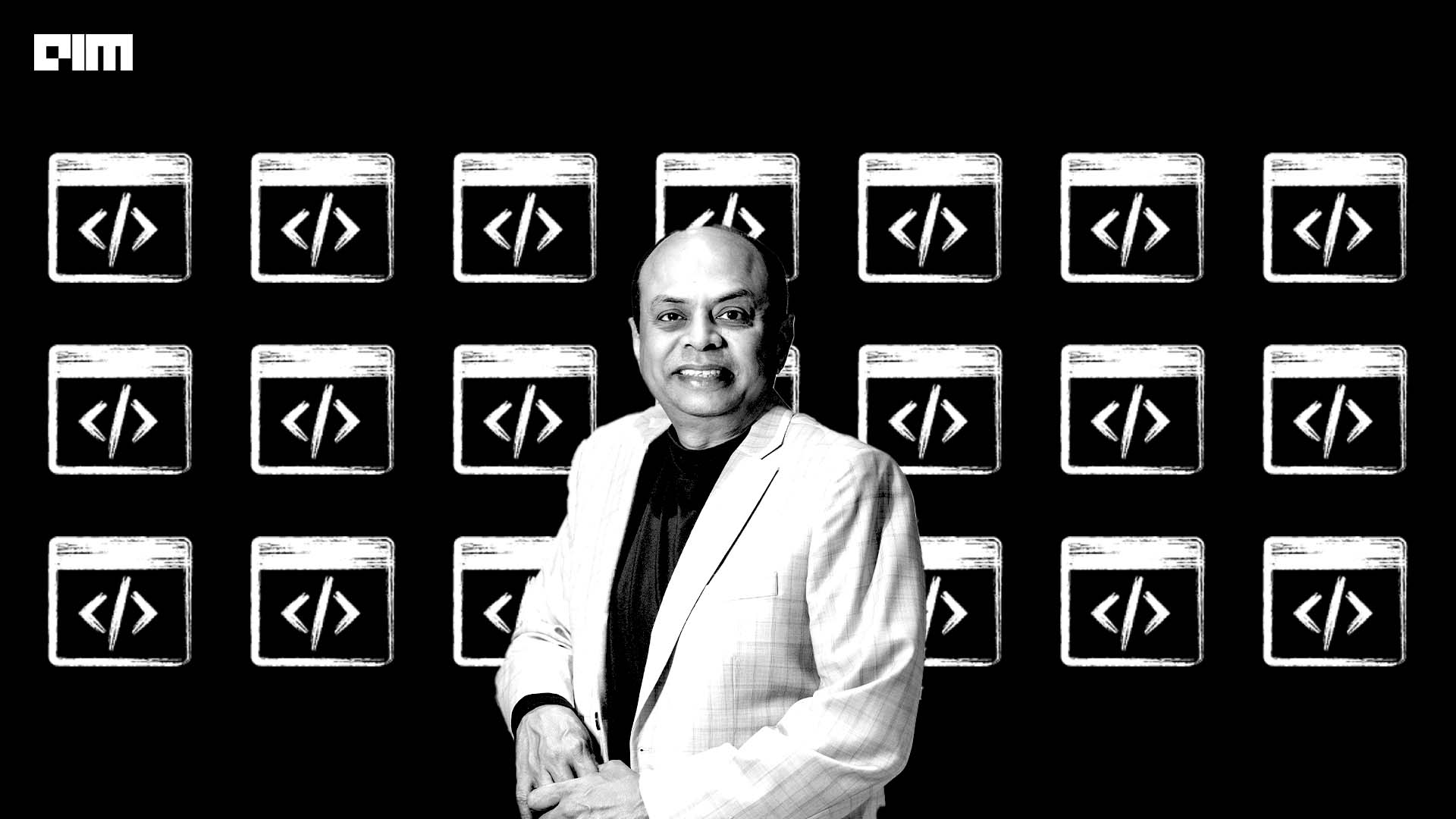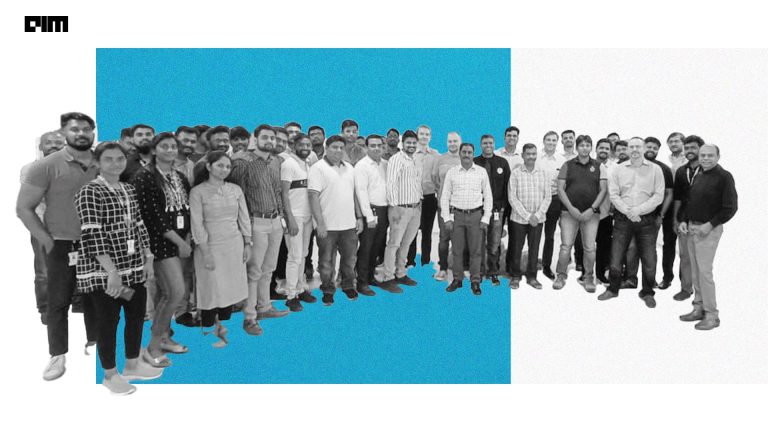|
Listen to this story
|
Low-code and no-code platforms are revolutionising the way businesses and individuals develop and deploy software. In 2017, Forbes described low-code as ‘extraordinarily disruptive’. “The rise of low-code can be traced back to the onset of the pandemic, which was when organisations across industries were forced to step up and embrace digital adoption,” Deepak Visweswaraiah, vice president, platform engineering, and site managing director, Pegasystems, India, said.
In an exclusive interview with Analytics India Magazine, Visweswaraiah discusses the low-code market in India alongwith its adoption in Tier 2 and 3 cities, among other things.
How do you see the LC/NC market growing in India?
Deepak: A NASSCOM and Nagarro report pegged India’s low-code/no-code market at USD 400 million; it is slated to touch USD 4 billion by 2025. Adopters of LC/NC have witnessed a 3x-7x reduction in development and deployment time, a 3x-5x reduction in development costs, and a 30%-35% increase in ROI.
One of the main reasons for the growth of LC/NC in India is the increasing demand for software development to perform IT operations. Additionally, LC/NC has also increased the participation of non-tech candidates in the workforce and provided opportunities for job seekers, who can use their time to develop custom apps with minimal programming skills.
Can low-code/no-code platforms power the growth of SMEs and MSMEs in India?
Deepak: Low-code capabilities specialise in the creation of light-weight applications for people or small group usage and empower large enterprises to rapidly simplify complex business use cases. Given the benefits of rapid development and deployment – lower costs, faster delivery, and greater accessibility – low-code is turning out to be a silver bullet for SMEs and MSMEs to address myriad challenges.
It will equip small and medium businesses with tools to develop their own platforms without relying on a dedicated team of developers. When a low-code platform is offered as a service running in a cloud, it is even more interesting for this specific market as they don’t have to worry about the infrastructure and maintenance.
Tell us a bit about the low-code Pega platform
Deepak: Our low-code Pega platform is designed for enterprise-scale with the aim to build applications using visual constructs. It helps us incorporate capabilities that simplifies work and manage it across organisation such as:
- Tools for business developers and citizen developers – A familiar drag-and-drop functionality helps citizen developers and business users be part of the solution, providing step-by-step guidance to the right process and UI, connect it to the backend APIs and deliver a suitable app.
- Tools to manage application governance and compliance – Governance tools and alerts help IT managers gain visibility into the quality of each app at every stage of development and apply guardrails to keep the enterprise applications compliant with internal policies and best practices.
- Integrated environment for secure testing, deployment, and management – Speed application delivery and deployment with open and native testing capabilities establishes a continuous testing environment and enables users to create and automate functional tests for workflows, UI, and other application components.
What are other areas where no-code/low-code can be introduced in the future?
Deepak: The rapid adoption of low-code platforms is expanding to highly regulated industries to lay the cornerstone of a long-term IT strategy. Businesses empowered with low-code apps quickly adapt to new circumstances to address their changing customer needs.
Sustainable low-code to minimise waste: Today, businesses produce too many single-purpose apps with no vision for reuse. One way to improve productivity is to reduce waste through mature low-code deployments. We foresee enterprises shifting their focus on building reusable assets to avoid ‘app sprawl’ and have a combined impact on innovation. Therefore, purpose-built low-code platforms are an area of focus.
Low-code with a brain in future: AI is on the rise and disrupting almost every aspect of a business. In 2023, we’ll see smarter low-code infused with AI. It will optimise processes, increase efficiency, and improve decision-making, making low-code development beneficial, safer, and smarter than ever before.
Creating an API economy with low-code: Without a doubt, low-code tools are helping speed up software creation and delivery. However, there is scope for businesses to embrace an approach where both high and low-code can coexist – made possible by the power of APIs.
How excited are you about the Indian developer ecosystem and how different is it from other countries?
The community of developers is expected to grow to 10 million by 2023, India is likely to overtake the US with the highest number of developers in the future. Developers, especially from Tier 2/3 cities, play a significant role in shaping the future of emerging technology.
The Pega ecosystem has created unlimited growth opportunities for students, college partners and global blue-chip companies. We have an ongoing association with TalentSprint – Pega University Academic Programme.
We have launched the tech careers of 10,000 students in the past seven years. We started by partnering with two colleges, which have now expanded to 18+ colleges. The holistic programme enables third-year engineering college students to build robust capabilities in low-code technologies to secure a competition-proof career with the customers and partners of Pegasystems.














































































